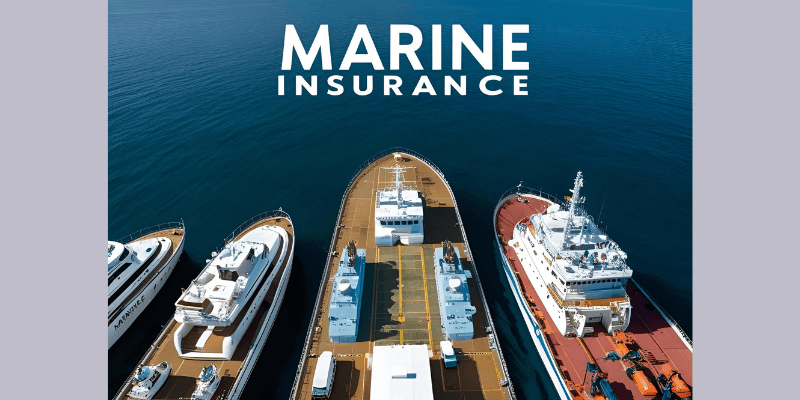General Discussion About Marine Insurance: A Complete Guide

Marine insurance is a specialized form of coverage designed to protect ships, cargo, terminals, and any transport or cargo-related liabilities during transit. Whether you’re a shipping company, exporter, importer, or freight forwarder, understanding marine insurance is crucial to mitigating risks in global trade.
What Is Marine Insurance?
A marine insurance policy provides financial protection against losses or damages to vessels, cargo, and other maritime assets. It covers risks such as piracy, natural disasters, collisions, and theft. This insurance is essential for businesses involved in international trade, ensuring smooth operations despite unforeseen disruptions.
Types of Marine Insurance
1. Hull Insurance
This covers physical damage to the ship or vessel, including machinery, equipment, and the hull itself. It protects shipowners from financial losses due to accidents, storms, or sinking.
2. Cargo Insurance
This safeguards goods being transported by sea, air, or land. It compensates for damage, loss, or theft of cargo during transit.
3. Freight Insurance
Freight insurance ensures that shipping companies receive payment even if cargo is lost or damaged, protecting revenue streams.
4. Liability Insurance (Protection & Indemnity)
Also known as P&I insurance, it covers third-party liabilities, including injury claims, pollution damages, and wreck removal costs.
Why Is Marine Insurance Important?
Global trade involves high-value shipments crossing unpredictable waters. A marine insurance policy provides:
- Financial Security: Covers repair, replacement, or compensation costs.
- Legal Compliance: Many countries mandate marine insurance for imports/exports.
- Risk Mitigation: Protects against natural disasters, piracy, and human errors.
- Business Continuity: Ensures smooth operations despite transit disruptions.
Key Features of a Marine Insurance Policy
When choosing a marine insurance policy, consider:
- Coverage Scope: Does it include war risks, piracy, or natural disasters?
- Deductibles: The out-of-pocket amount before insurance kicks in.
- Exclusions: Some policies exclude certain perils (e.g., wear and tear).
- Claims Process: How quickly and efficiently claims are settled.
How to Choose the Best Marine Insurance Provider
Selecting the right insurer is crucial. Look for:
- Reputation: Check reviews and financial stability ratings.
- Global Network: Ensure they cover your shipping routes.
- Customizable Policies: Tailored coverage for your specific needs.
- Fast Claims Settlement: Avoid delays in compensation.
Common Marine Insurance Claims
Frequent claims include:
- Cargo Damage: Due to rough handling or extreme weather.
- Ship Collisions: Leading to hull damage or total loss.
- Theft & Piracy: Especially in high-risk regions.
- Natural Disasters: Hurricanes, tsunamis, or storms.
Conclusion
A marine insurance policy is a lifeline for businesses engaged in shipping and logistics. It minimizes financial risks, ensures compliance, and keeps global trade flowing smoothly. Whether you’re insuring cargo, vessels, or freight, choosing the right coverage can save millions in potential losses.
Need marine insurance? Compare policies, assess risks, and consult experts to secure the best protection for your maritime ventures.